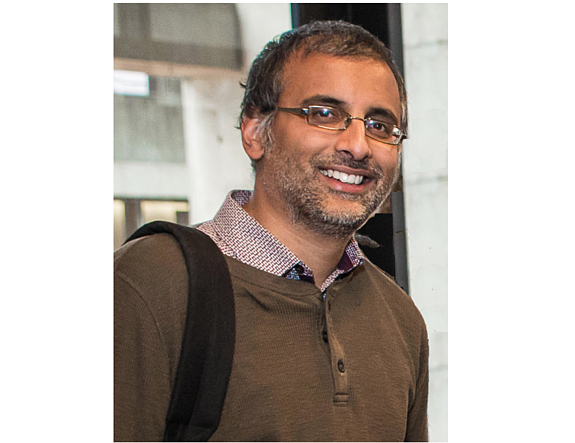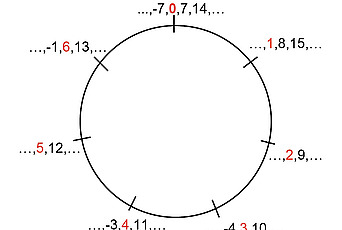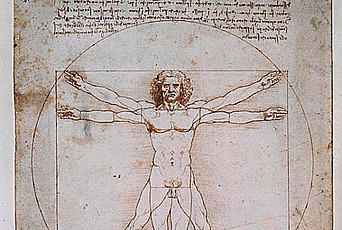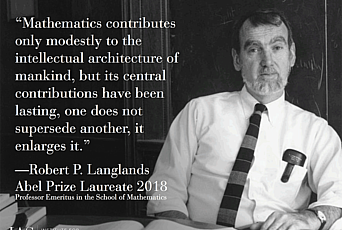Mathematician Akshay Venkatesh Appointed to the Faculty of the Institute for Advanced Study
Press Contact

Akshay Venkatesh, a world-leading mathematician who has made fundamental contributions to various fields of mathematics, working in particular at the intersection of analytic number theory, algebraic number theory, and representation theory, has been appointed to the Faculty of the School of Mathematics, effective August 15, 2018.
Venkatesh’s outstanding contributions have been recognized internationally, and he has produced acclaimed results such as resolving the “subconvexity problem” for degree two L‐functions. Moreover, his work on disparate problems pertaining to the general field of number theory has transcended boundaries between subjects, yielded important insights across multiple research areas, and introduced several new directions.
“Akshay is among the most influential contemporary mathematicians, and his appointment ensures the furtherance of the Institute’s pioneering research in the interconnected fields of number theory and representation theory,” said Robbert Dijkgraaf, Director and Leon Levy Professor. “With his enthusiastic drive to explore unknown territories and his ability to develop new insights and relations between fields, Akshay’s contributions are bound to be revolutionary and will help to define the future shape of mathematics as a whole.”
“Akshay is a mathematician who opens up new directions,” said Richard Taylor, Robert and Luisa Fernholz Professor in the School of Mathematics. “His great mathematical breadth, his eye for surprising new connections, and his enthusiasm for collaboration with a wide range of different mathematicians will make him a wonderful asset for the School of Mathematics and its Members.”
Peter Sarnak, Professor in the School, added, “Among Akshay’s singular talents is to uncover the essence, as well as novel variations, of various powerful techniques and to implement them in settings that no one imagined possible. His new tools have allowed him and others to resolve or to address some long-standing problems in number theory.”
Of his appointment, Venkatesh commented, “Much of modern number theory was nurtured at the IAS; many structures that I have spent my career studying were created here. It is a singular pleasure and honor to be joining the Faculty of the Institute."
Currently Professor of Mathematics at Stanford University, Venkatesh served as Distinguished Visiting Professor in the Institute’s School of Mathematics in 2017–18, leading a special program on analytical and topological aspects of locally symmetric spaces. His appointment underscores the centrality of number theory and representation theory, the fields in which Venkatesh is a leading figure, to the past, present, and future of the School of Mathematics, in the tradition of the groundbreaking work carried out by Armand Borel, Harish-Chandra, Atle Selberg, Carl Siegel, André Weil, and Hermann Weyl.
Modern number theory builds on various other central areas of mathematics, and Venkatesh’s many breakthroughs include ones in automorphic forms and representation theory, ergodic theory, and algebraic topology. The signature of his work is great originality and intuition coupled with the development of powerful and general techniques in novel and unexpected settings. As a result, his developments on long-standing problems in number theory have a broad impact in related areas. The breadth and richness of Venkatesh’s work, as well as the ease with which he works with mathematicians in different fields, has resulted in a large worldwide following, especially among young mathematicians.
The theory of L-functions, generalizing that of the Riemann zeta function, is perhaps the central object in modern number theory. Introducing techniques from ergodic theory and representation theory, Venkatesh proved a landmark result, completely resolving the “subconvexity problem” for degree two L-functions. This led him, in joint works with experts in analytic number theory and ergodic theory, to a series of striking breakthroughs on problems of equidistribution in homogeneous dynamics and their applications to classical Diophantine problems in the theory of quadratic forms and algebraic number fields. With an uncanny ability to find surprising and deep connections between different areas, Venkatesh uses his insights and broad views to achieve major results, which in hindsight are only possible when techniques in these very different areas are combined.
Using some keen insights about stable ranges of the homology groups of parameter spaces (Hurwitz spaces) of algebraic curves, Venkatesh and his coworkers have proven a good portion of the Cohen-Lenstra heuristics in the function field setting. Their work, which was achieved using a striking and novel combination of methods from number theory, algebraic topology, and arithmetic geometry, has opened the door to a flourishing area of investigation.
In addition, recent conjectures by Venkatesh have related the cohomology of locally symmetric spaces to the motivic cohomology of algebraic varieties. As part of the 2017–18 special program at IAS, Venkatesh delivered a series of lectures on these conjectures, which he has verified in various special cases. They provide, among other things, new algebraic structures (in the context of non-Shimura varieties) related to the method of Professor Richard Taylor and Andrew Wiles, frequent IAS Member, for analyzing deformations of Galois representations. Venkatesh’s tantalizing theory in these contexts promises to be part of the big picture relating automorphic forms on general arithmetic locally symmetric spaces and Galois representations, further building on the conjectures of Robert Langlands, Professor Emeritus in the School, which have guided efforts in this area for more than fifty years.
Venkatesh earned a B.Sc. in Mathematics and Physics at the University of Western Australia (1997) and a Ph.D. in Mathematics at Princeton University (2002). He was C.L.E. Moore Instructor (2002–04) at the Massachusetts Institute of Technology, a Member (2005–06) in the Institute’s School of Mathematics, and Associate Professor (2005–08) at New York University’s Courant Institute of Mathematical Sciences. His research has been recognized with many awards, including the Ostrowski Prize, the Infosys Prize, and the Salem Prize, and he has been an invited speaker at the International Congress of Mathematicians in 2010 and will speak again in 2018. He serves on the Editorial Boards Committee of the American Mathematical Society and is an editor of the Journal de l'institut mathematique de Jussieu and former editor (2011–16) of Math Annalen.


